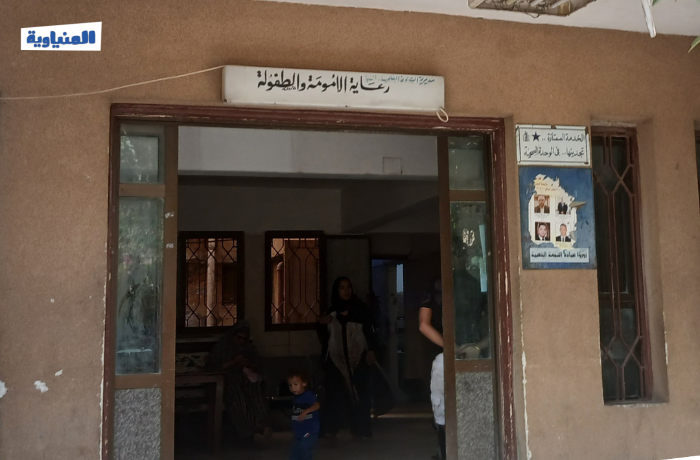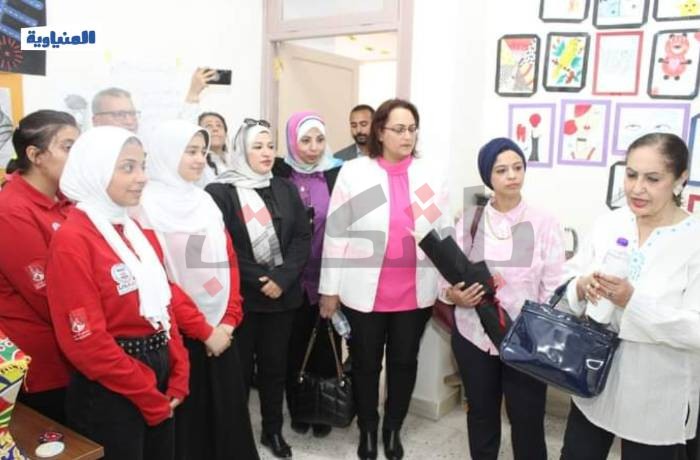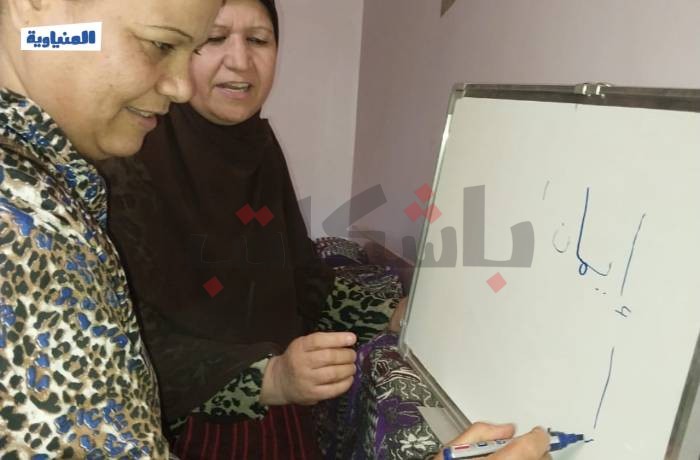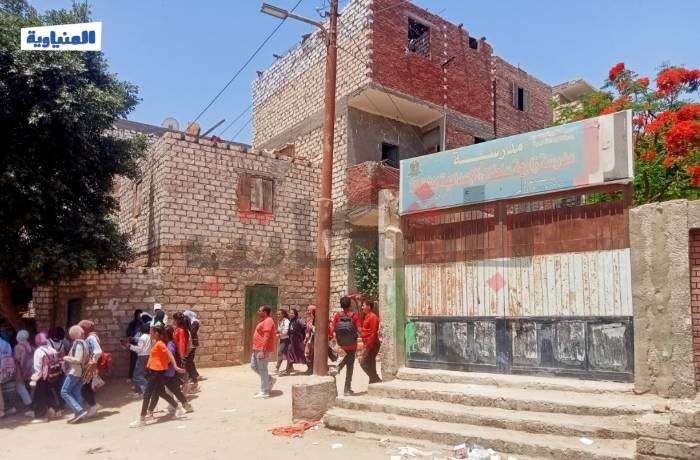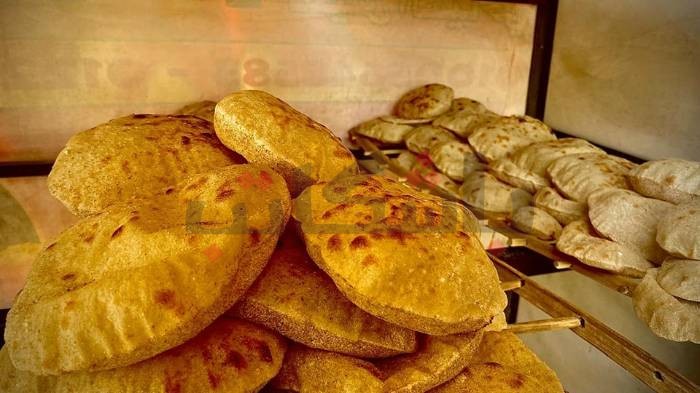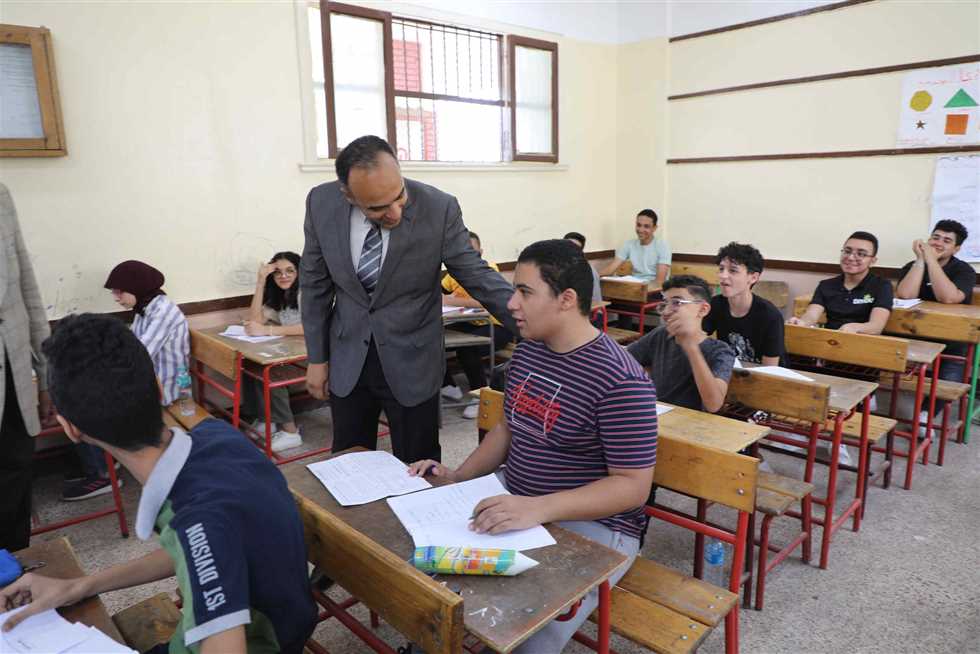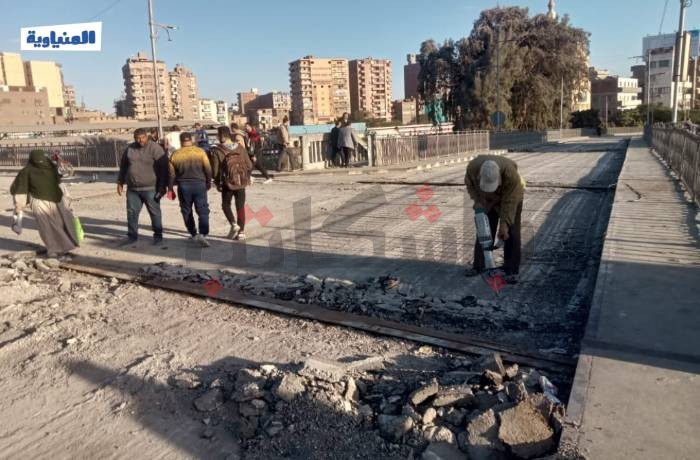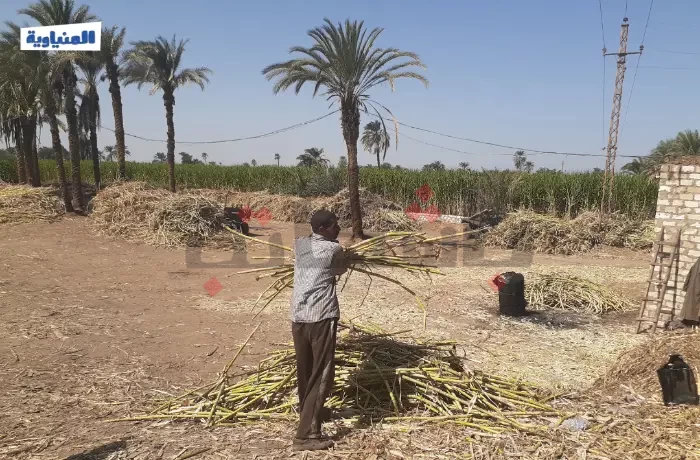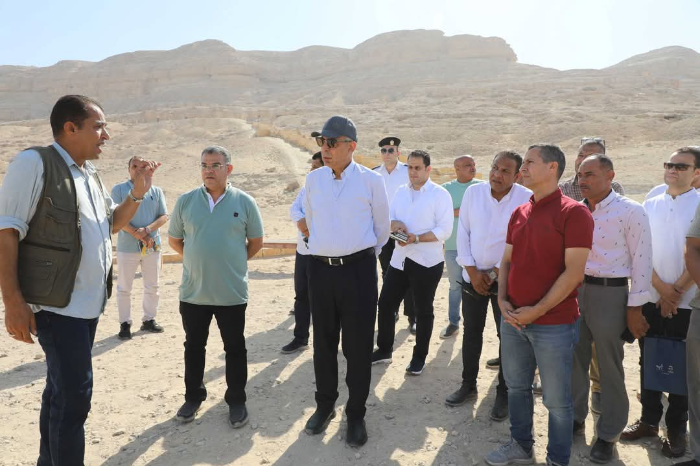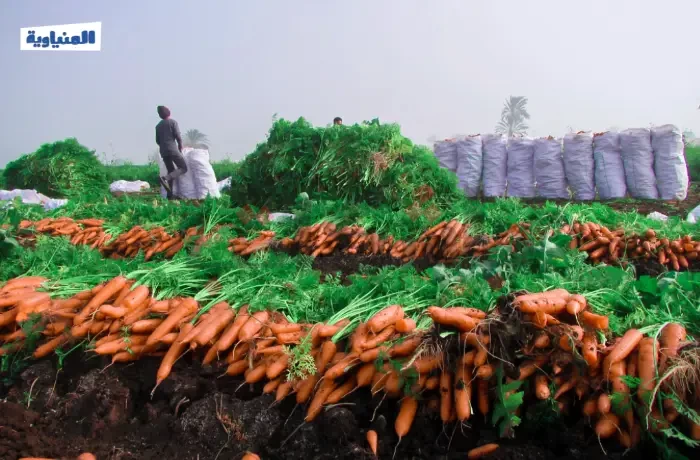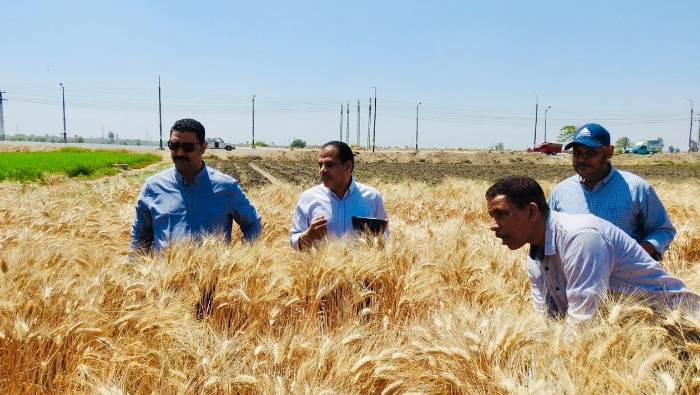Heba Essam, 25 years old, decided, last May, to go through a periodic trip, on the beginning of every month, from her house in Ibshadat village, Malawi town, Minya governorate, to formula milk outlet centre at Hour’s village health care unit, to receive her baby’s monthly quota of formula milk.
“I was tired after having a c-section, so I was unable to breastfeed my baby from day one, despite failing attempts for the first ten days of the delivery.”
Heba says that her doctor said at that time that her failure to breastfeed was due to the small size of her breasts, and not putting the baby to the breast all this time, so the doctor prescribed “formula milk”.
By simply calculating the cost of the formula the child would need monthly, the amount found was more than family’s monthly income, so they immediately decided to have Hiba go to the health unit to undergo the medical examination required by the Ministry of Health to provide any family with subsidised packages of formula milk.
The Ministry of Health implements this procedure through the health units affiliated to it, where they receive applications and run medical examinations. The units have distribution outlets, and every baby’s quota of milk decreases as they get older.
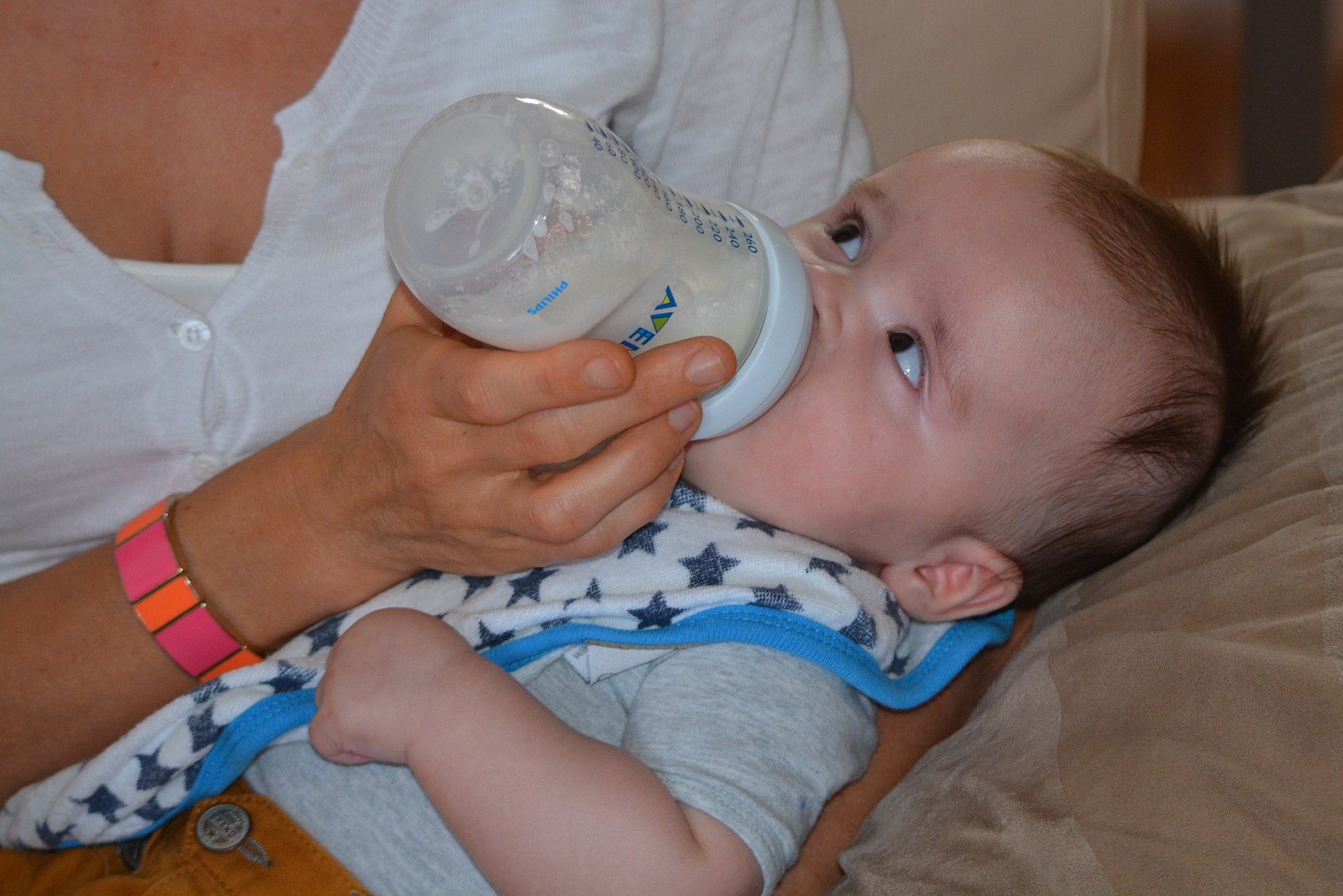
By Doctor’s Orders
The Ministry of Health decides which case has the right to receive the subsidised formula; either the mother is deceased, the mother does not lactate, the mother suffers from postpartum depression, or the mother takes medication that affects her lactation. In case of having twins, the mother receives subsidised formula for one baby only while she breastfeeds the other, and in case of having triplets, the ministry subsidises formula for two of the three, while the mother breastfeeds the third baby.
After being examined, Heba got the doctor’s consent to receive subsidised formula milk, unlike Sammer Hefzy, a housewife from Asmant village, Abu Qurqas town, who described the medical examination she was subjected to as torture, couldn’t get the doctor to give her permission for obtaining the formula.
“I had my second child last February, my breasts were lactating, but the paediatrician said that the milk wasn’t enough for the baby, and he prescribed me formula milk,” said Sammer.
Formula milk prices at the free market start from 250 EGP, so Sammer decided to be examined in order to obtain the subsidised one offered by the Ministry of Health in its health care units.
Sammer was surprised by the doctor’s refusal to approve on granting her the milk, under the pretext that she is already lactating, for one of the ministry’s conditions is that the mother does not lactate, regardless whether the milk is enough for the baby or not.
“The doctor didn’t listen to my pleas that the milk is not enough for my baby, and that I’ll have to buy formula milk despite my financial inability to do so, but according to the doctor, I do not meet the criteria, hence do not have the right to the subsidised milk,” commented Sammer.
Over three months after delivering her baby, Sammer bought 10 packets of formula milk from the pharmacy every month, at a cost of 2,000 EGP per month, while her husband’s income, he works at a restaurant, is 7,000 EGP.
Sammer indicates that the packet’s price has risen from 250 EGP to 400 EGP, and if not for starting to add solid food into the baby’s diet, in addition to the milk, the family would’ve never been able to afford to buy the same amount of milk, with this surge in the prices.
“I reduced the formula milk amount and added solid food my baby’s diet after becoming 6 months old, which saved a good amount of money off the milk budget, and to be honest, I decided not to have another baby as I don’t know how we’ll support another child with our tight budget,” clarified Sammer.
Subsidisation Vs. Examination
“This examination is for checking if the mother is able to properly breastfeed her baby, for some do not breastfeed them correctly, and in this case the doctor offers her the necessary instructions,” clarified A.M.; if the mother follows the breastfeeding instructions yet she is still not lactating, the doctor would squeeze her breast, and if it exerts even a single drop of milk, then the mother is denied subsidised formula.
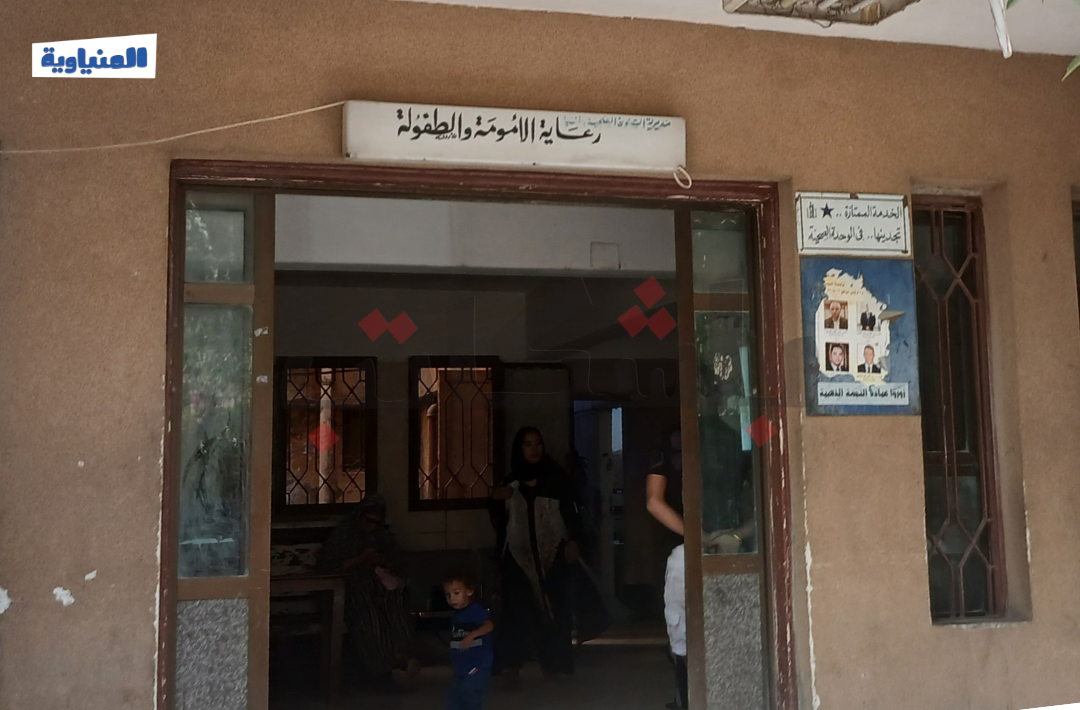
Formula milk is subsidised during the first six months, at the cost of 5 EGP per packet, whereas the second six months it is sold at the cost of 26 EGP; the ministry offers subsidised milk until the baby reaches one year old.
A.M. confirms that formula milk is always available in the health care units’ outlets; babies are granted six packets during their first three months, then they receive eight packets for another three months, yet the number of packets is reduced to four by them reaching the age of nine months, and then decreases more to reach two packets by becoming one year old.
During this period, solid food is added to the baby’s diet, and the rural pioneer adds that formula milk's nutritional value is lower than mother’s milk, it is only there to satisfy the baby’s hunger. She mentions that many babies refuse the subsidised milk type, and in this case, mothers are forced to buy the milk prescribed to them from the pharmacy.
“Demeaning Examination”
Heba Essam describes the medical examination as “demeaning”, saying, “I used to hear people talk about the medical examination of mothers applying for receiving subsidised milk, and I was worried to go through it, but I have no choice as the alternative is to buy the expensive one, and my husband’s income is limited.”
Heba explains her experience with the medical examination, saying, “the health care unit doctor squeezed my breast so hard, and I suffered from severe pain in my breast for three days because of that.”
Sammer also expresses her dissatisfaction with what happened to her during the examination, “had I known the doctor wouldn’t believe me, and won’t check the papers proving that I my milk is not sufficient for the baby, I wouldn’t have gone through this examination,” the doctor infuriated Sammer when she told her: “these prescriptions are issued by a doctor I cannot acknowledge.”
The Official’s Reply
In response, Dr. Hanan Saber, head of Maternal and Child Care at Minya Health Administration, said that mothers are medically examined in Minya, and those who can lactate are advised to breastfeed their babies, as the Ministry of Health’s regulations exclude them from having subsidised milk, confirming that, “we are keen on encouraging breastfeeding.”
As for ill mothers, they are bound to submit clear medical documents explaining their health condition, provided that the papers are certified by a government hospital. Some women resort to fraud in order to receive the milk, such as switching with another non-lactating woman to undergo the examination, but we make sure to verify their identities through the national ID card, before receiving their share of the formula and signing on the medical examination.
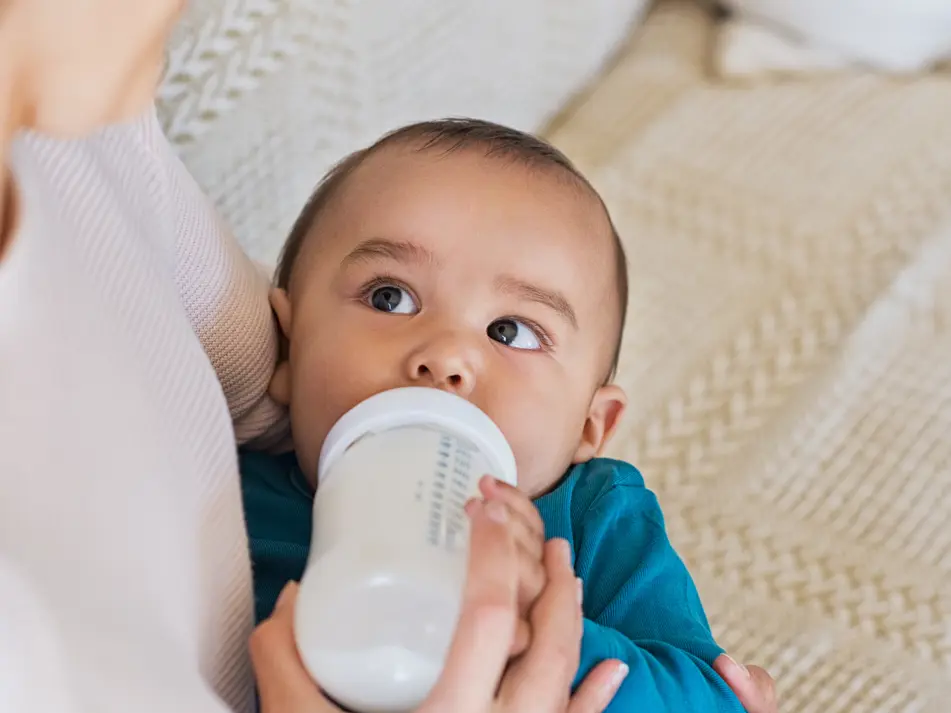
Formula Milk Shortage
On the other hand, Manal Abduallah refused to go through medical examination; she had her first baby eight months ago, the baby suffered from reflux and refused to take her breast, so her paediatrician confirmed that subsidised milk is not fit for the baby, she had to buy formula milk during the baby’s first three months, at the cost of 450 EGP per packet.
“My baby used to consume six packets monthly, and the type of the formula was not available in Minya’s pharmacies, so I brought it from Cairo, and starting from the third month until the seventh, the baby consumed eight packets monthly,” said Manal. During this period, the milk’s price has risen between 550 to 600 EGP, so the mother was forced to buy only two packets last month.
Commenting on the crisis of the shortage in the formula milk prescribed for Manal’s baby, the head of Maternal and Child Care at the Health Administration assured that the Ministry of Health offers medical formula for free, which is formula milk specialised for babies requiring certain types of formula, such as babies suffering from milk allergy or other genetic diseases requiring special formula or “underweight babies”. Moreover, Misr Al-Hurra Hospital, formerly known as Suzanne Mubarak Hospital, has undertaken offering medical formula milk to the babies in Minya Governorate.
“We have no shortage in formula milk for babies under three months, but sometimes there is shortage for milk specified for older babies, yet this shortage lasts for a day or two,” added Hanan.
